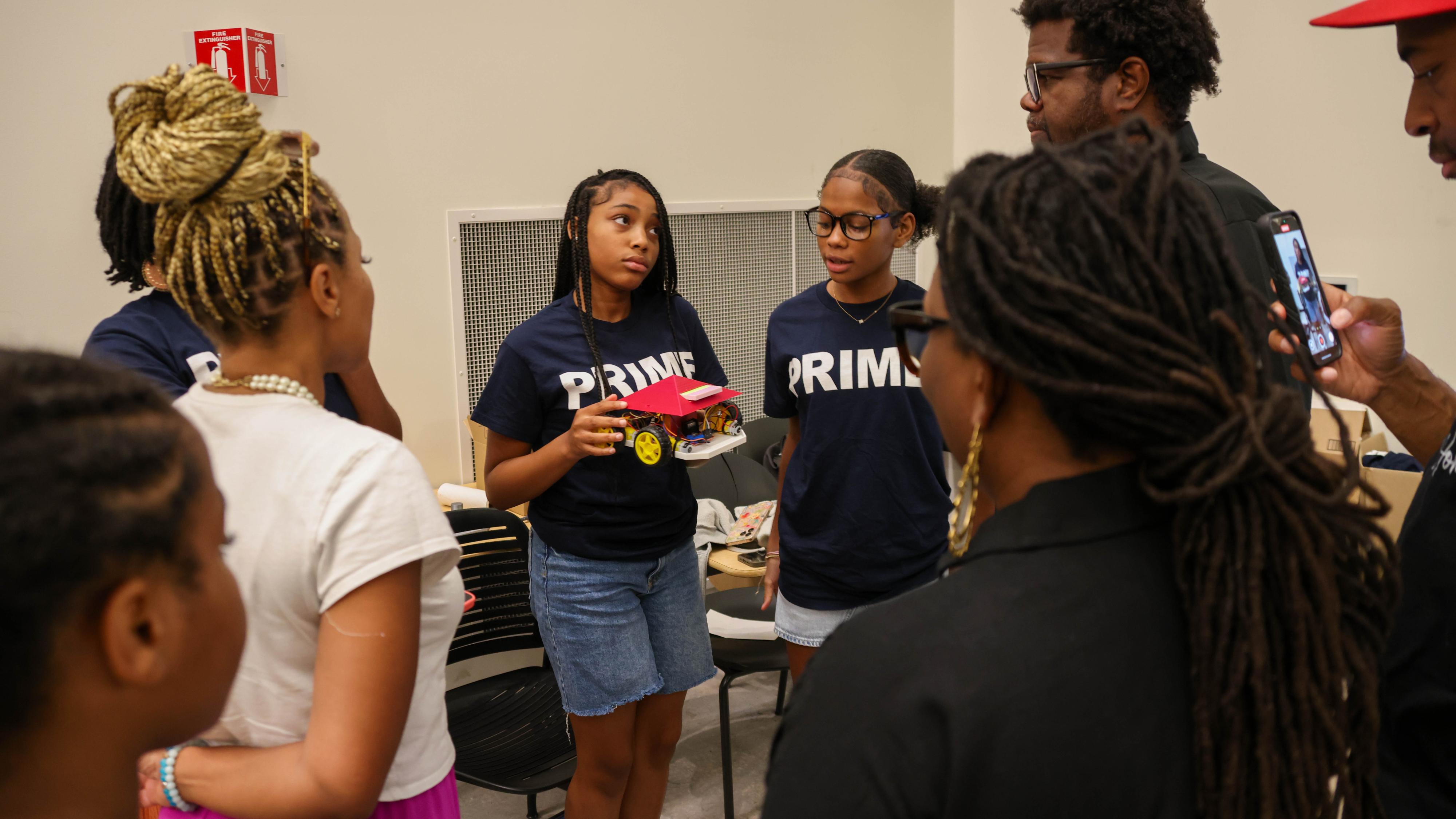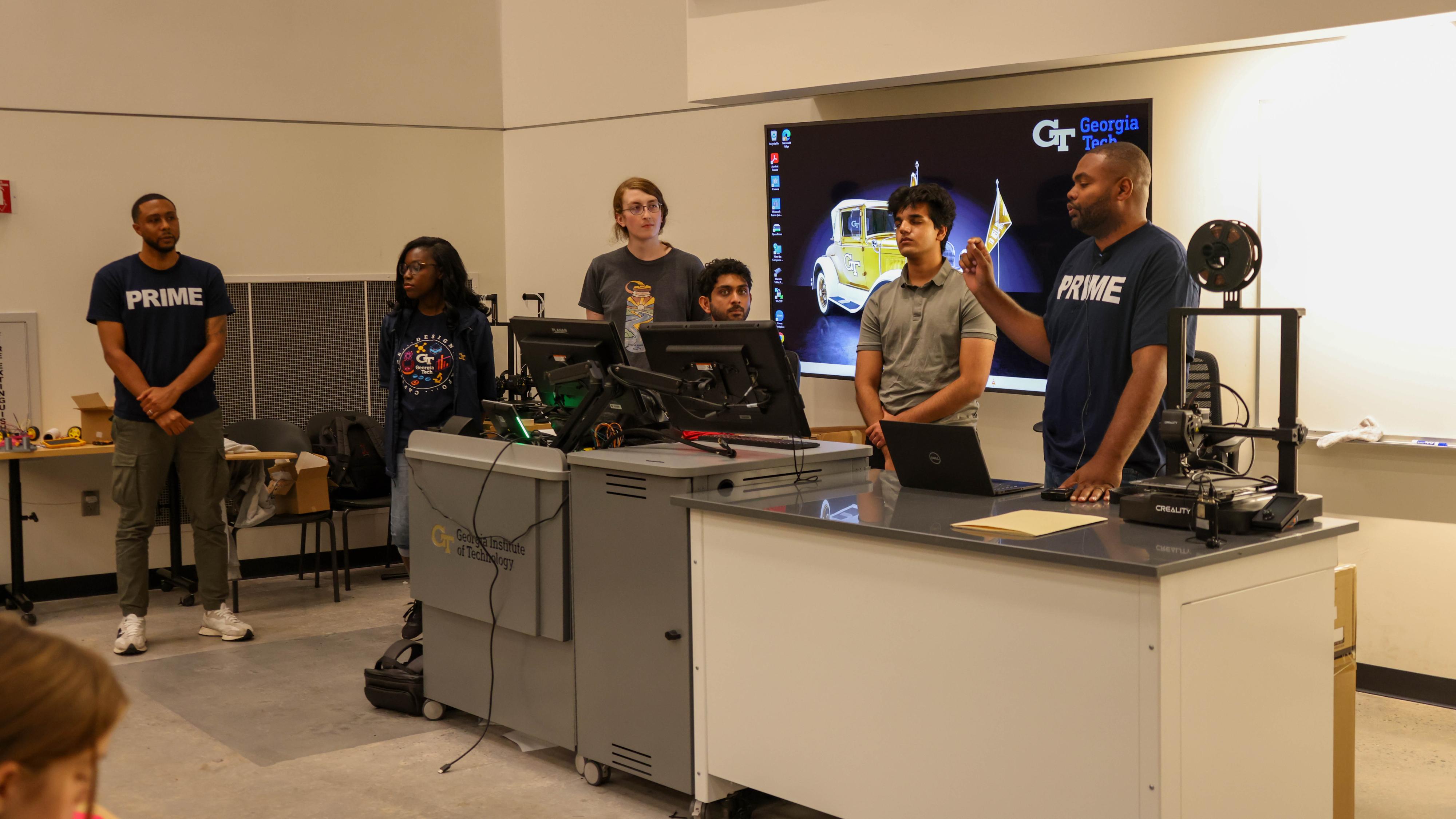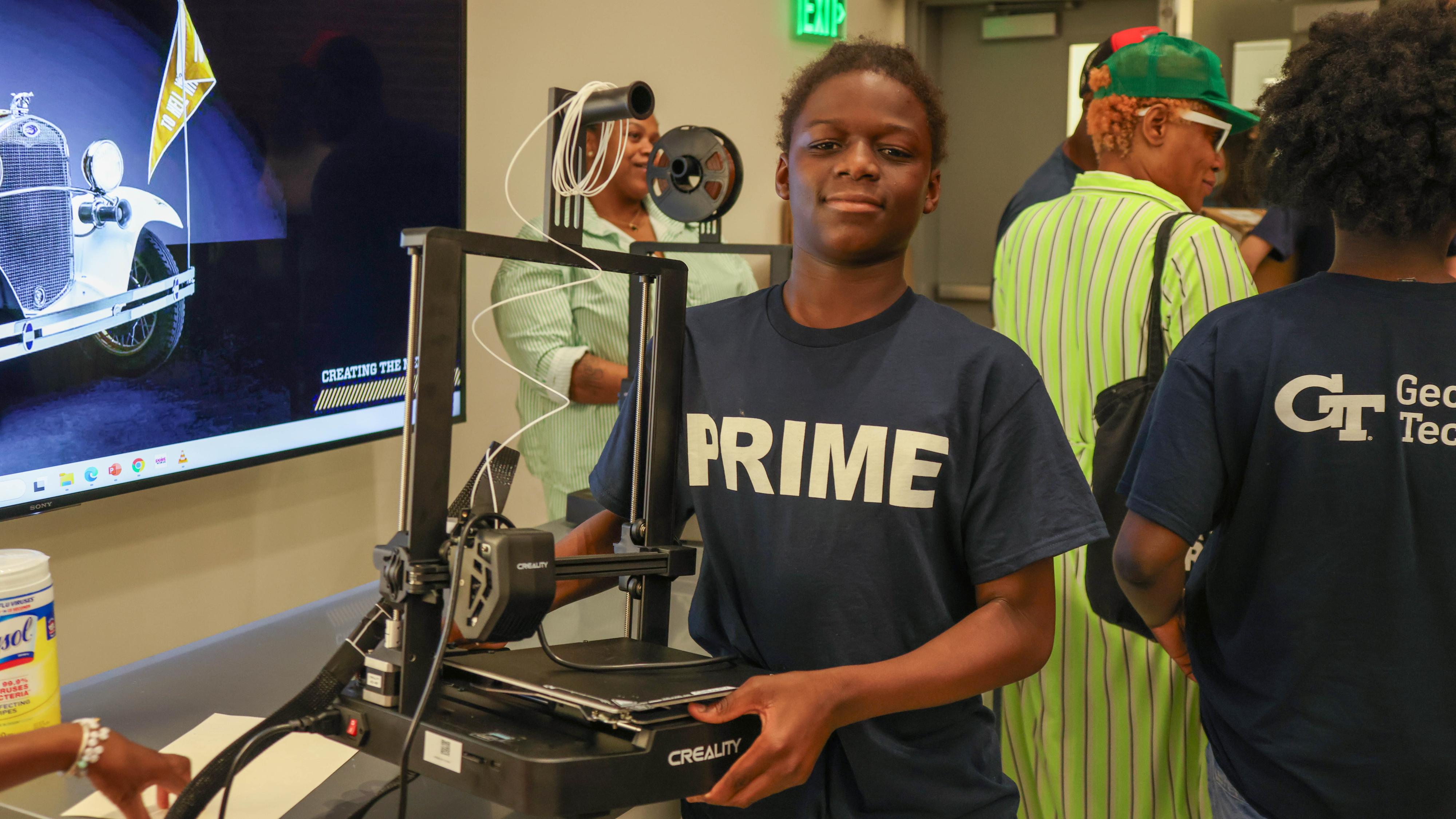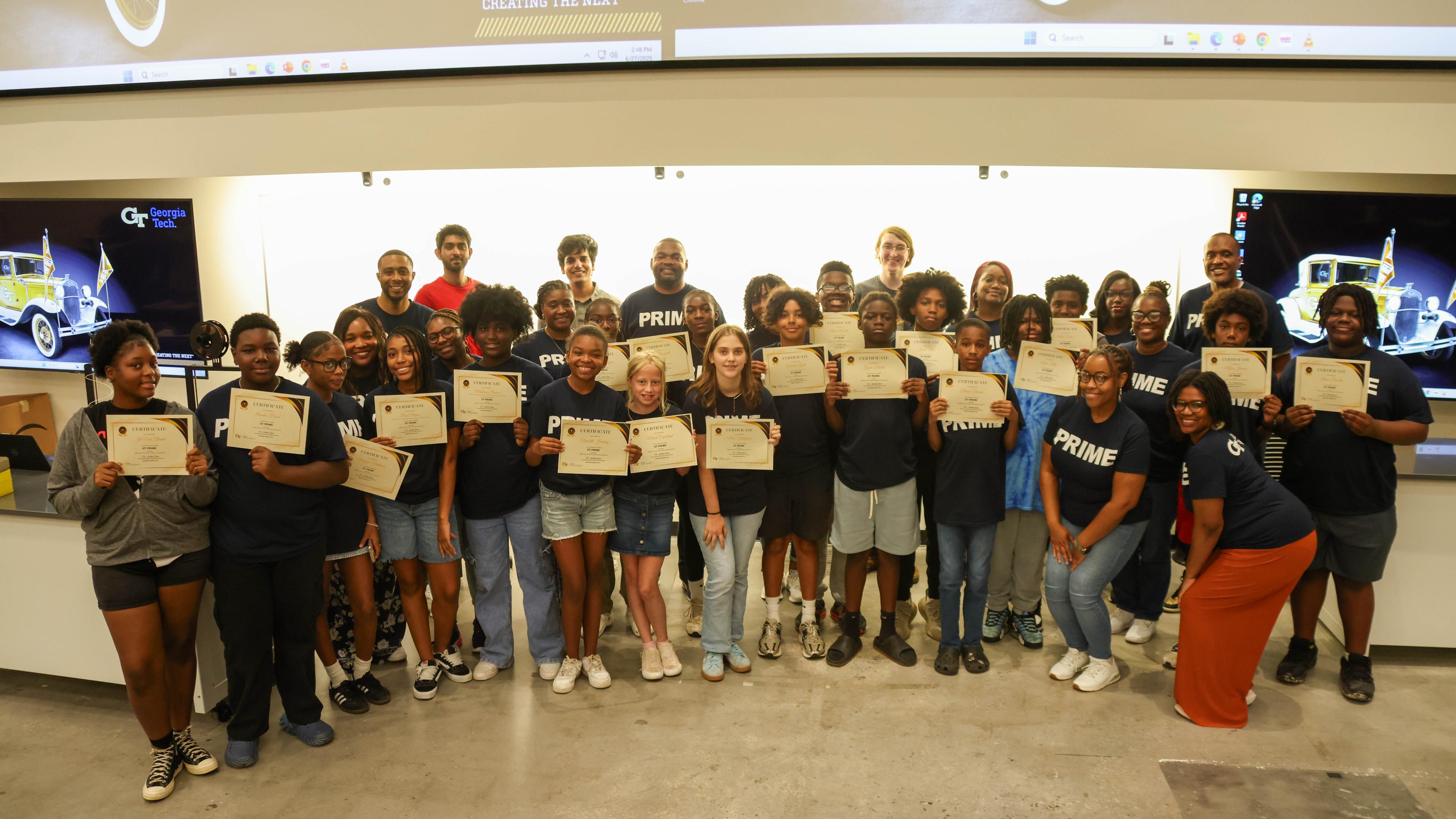
Building Robots and Relationships at the Woodruff School’s 2nd Annual GT PRIME
August 22, 2025
By Mikey Fuller
Middle school students and K-12 counselors will return to school having gained more than hands-on STEM experience from the second annual GT PRIME program.
Hosted by the George W. Woodruff School of Mechanical Engineering and created by Jonathan Gaines, associate chair for outreach and engagement, GT PRIME is a STEM immersion and mentoring program created to help school counselors and middle school students widen their knowledge of engineering while building meaningful relationships with one another.
Counselors were selected from Fulton County Schools and Atlanta Public Schools and were trained a week before the kids joined the camp on engineering, culturally responsive mentoring, and the program's values.
Brittany Gibson, a school counselor at Global Impact Academy, said she wanted to join GT PRIME as a counselor because she loves helping people, especially children.
“It was really eye-opening,” Gibson said. "It expanded my purview as a counselor to go back to my community and show them how to make things. It was a lot more than just robot-building because there were so many moving parts that we had to learn ourselves.”
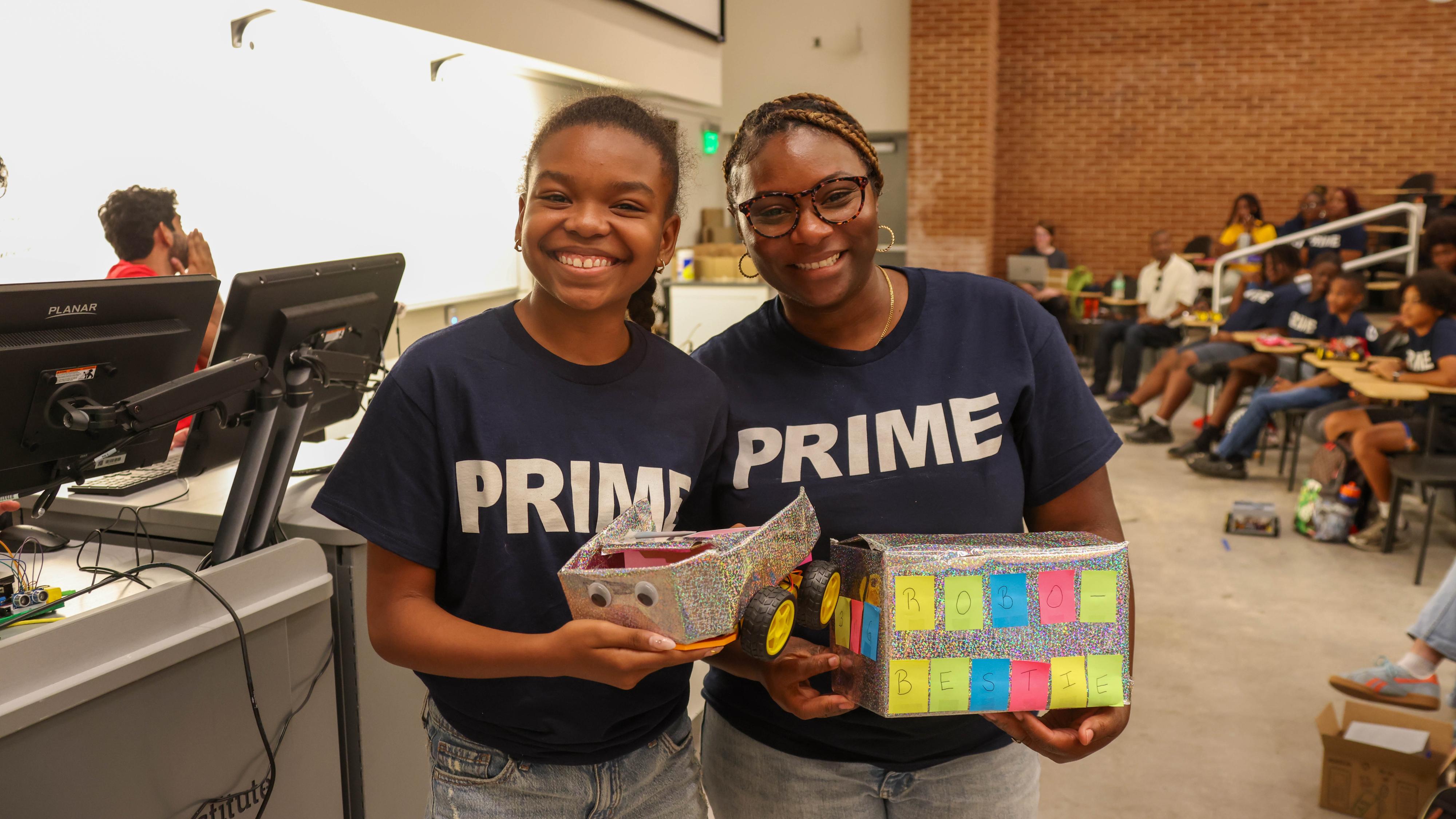
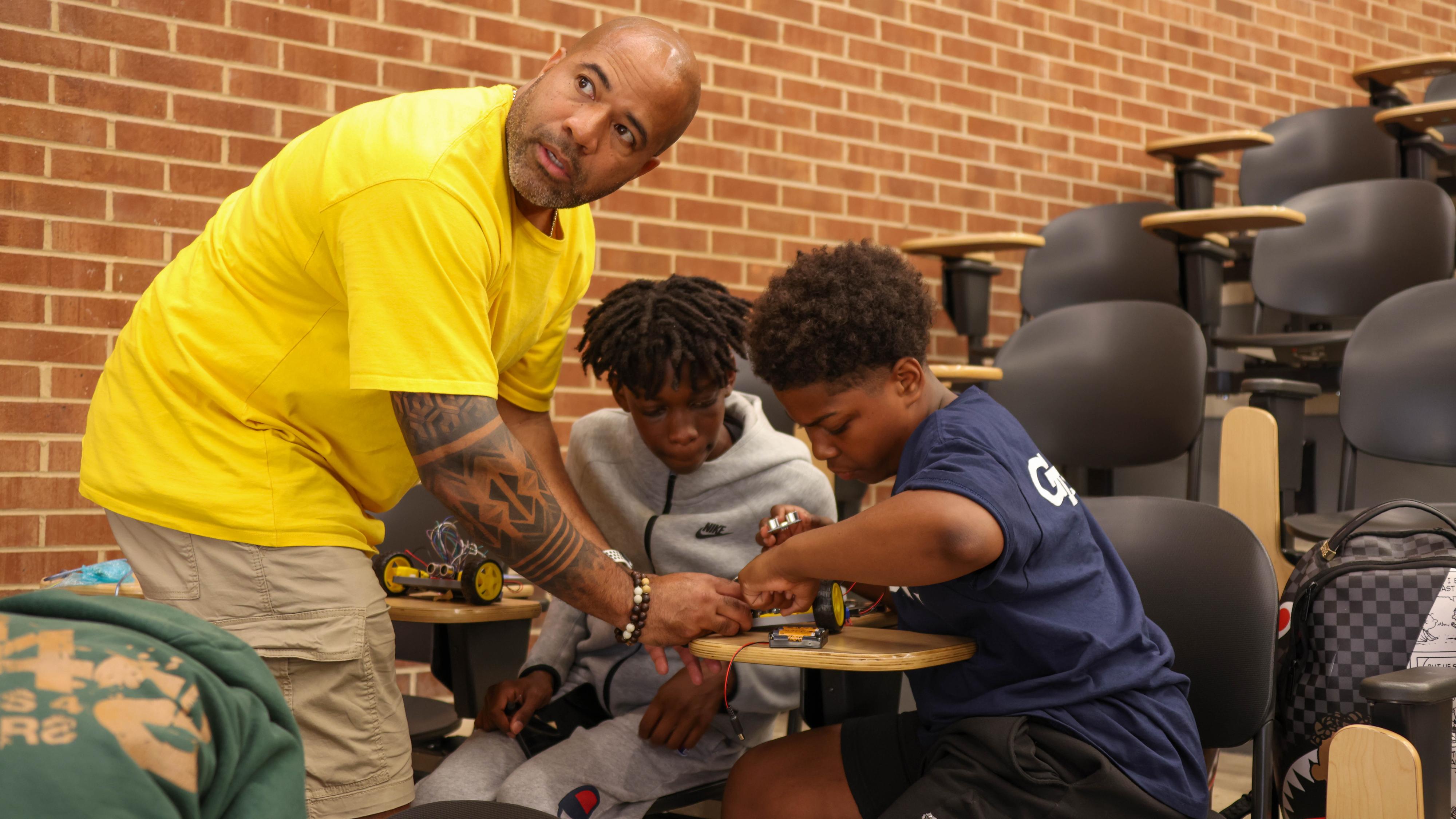
After its launch in summer 2024, Gaines said the counselors from that year brought more than 300 students from their home school back to Georgia Tech’s campus during the academic year. Gaines hopes to continue that success this year.
“The skills they picked up after this summer’s program around rapid prototyping are expected to help them encourage youth at their local institutions to become makers and to increase their identity as future engineers,” Gaines said.
This year’s curriculum focused on robotics, rapid prototyping, and entrepreneurship. Counselors helped students use computer-aided design to build and 3D print a chassis for a robot that they created from the ground up.
Students were divided into teams where they redesigned their robots as toys that could not only be used to teach other young students about robotics but could also be utilized as a product that could help solve problems in their community.
The program was divided into phases made to help students grow as learners, designers, and creators. The first week, attendees learned how to develop and program the robot. The second week, they were designers focused on learning how to apply the engineering design process to redesign and improve the robot. In the final week, students focused on how their robot could be applied to make an impact on society.
The redesigned robot was packaged as the centerpiece of an online business where they explored hardware and operational costs, profit, marketing, and more.
Elizabeth Jennings, an eighth-grader at Drew Charter School, and Gibson, her counselor, constructed their robot to act as a best friend companion that uses positive affirmations.
“My favorite part of the program was probably the ups and downs of building the robot,” Jennings said. "But even though we had downs, we still found ways to overcome them.”
Gibson and Jennings also noted that the camp was much more than just building robots. They completed tasks that helped them learn about relationship building, teamwork, and problem-solving.
“We learned a lot about social and emotional learning because in engineering there can be a lot of highs and lows, so we took several moments each week to talk about how we were feeling,” Gibson said.
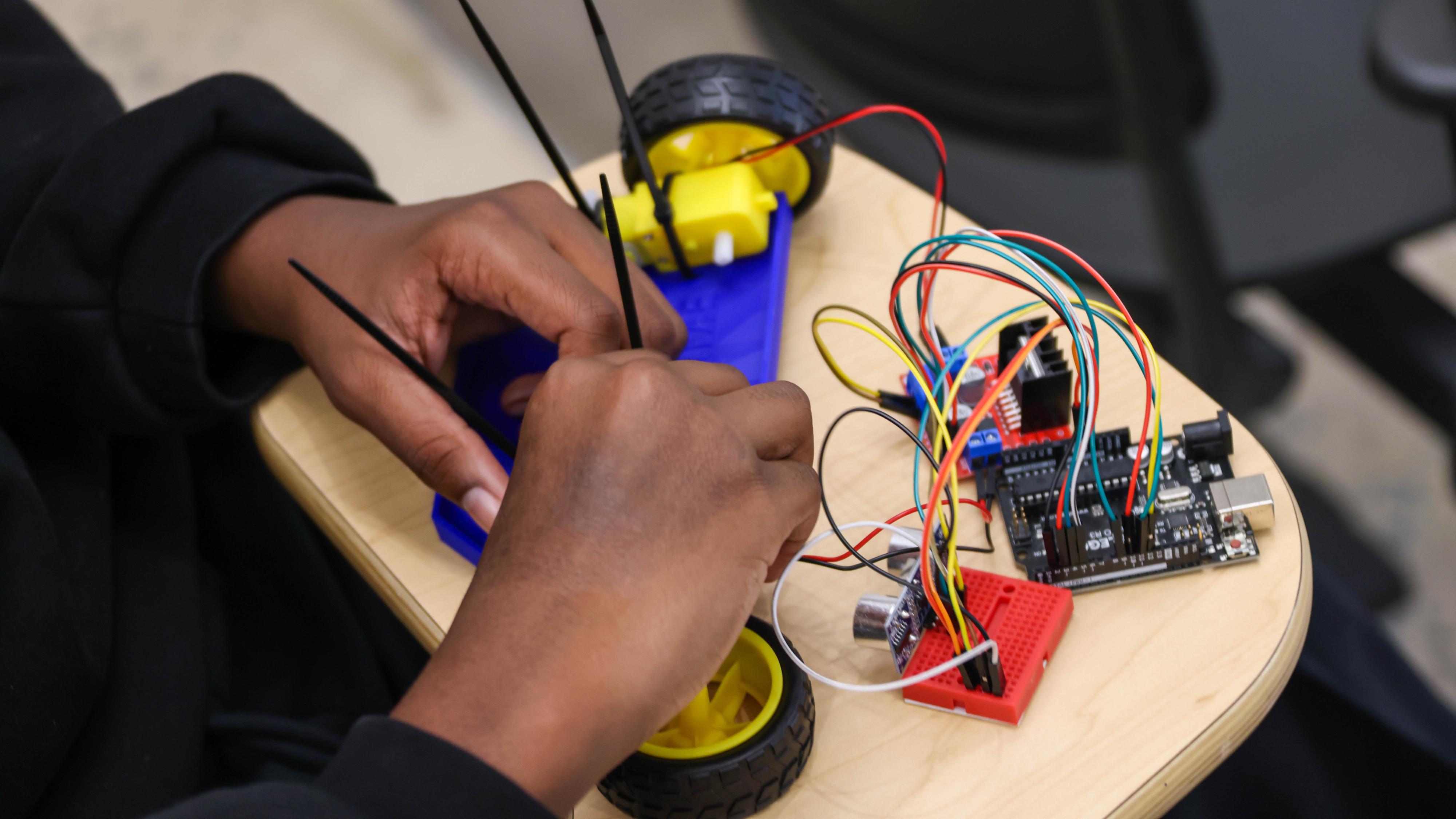
The phases of personal/identity development that Gaines implemented were group focus, individual focus, and future focus. These phases were meant to parallel the technical lessons attendees learned.
Group focus was spent building the students up as a family and growing within their design groups. Individual focus was based on who they were as individuals by honing in on their personal interests, assets, and skills. Lastly, students were taught to look into their futures and figure out how they were going to get there.
Gaines also teamed up with graduate students from School of Electrical and Computer Engineering to help coordinate camp projects.
For Gaines, the most meaningful feedback came from parents who said the program helped their children recognize and build on their own skills and abilities.
Jennings says GT PRIME is the best robotics camp that she’s been to and plans to recommend the program to other classmates in the years to come, just like they did for her.
“I feel like robots are going to be our future,” Jennings said. “And if you’re a person like me who likes helping people and making robots by doing that, then this camp would be great for you.”
After the final presentations, Gaines and staff awarded nine students with 3D printers for their leadership and skills developed during the camp.
Aundra Hood, an eighth-grader at DuBois Integrity Academy, said he was excited to take home his own 3D printer and hopes to pursue engineering as he continues his education.
“It feels really good, and I believe that I worked hard to get it,” Hood said. “I feel like I’ve grown as a person being at this camp.”
